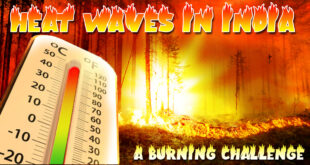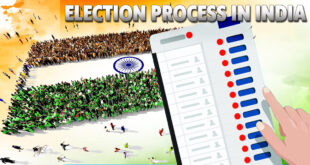The Centre is riding roughshod over Kashmiri public opinion already beset with disaffection
In the face of a massive security build-up in Kashmir at the close of July, a seasoned journalist conjectured, “This is just the right time when militants and their masters in Rawalpindi could do with a terror attack in Kashmir.” Such were the arguments trotted out by experienced media persons in seeking to account for the extraordinary lock down that had descended on Kashmir throwing its citizens into a panic, with a run on banks, petrol pumps and stores across the Valley. I began receiving phone calls from friends and associates as far as Gopalpora, Mattan and Doabgah and Sopore asking what was happening. My former colleagues in government, some in key positions, had no inkling and made dire predictions.
A steamrolling
And then we had the statement of the Home Minister, Amit Shah, in the Rajya Sabha on the morning of Monday August 5, 2019. Under Article 370 of the Constitution of India, the State of Jammu and Kashmir had its own Constitution and its own laws, with the President of India empowered to decide which provisions of the Indian Constitution would be applicable within the State, but only with the assent of the State.
In one fell swoop, the President, Ram Nath Kovind, declared that all provisions of the Indian Constitution shall now apply to the State, thus nullifying Article 370 with the use of that same article thereby ending the special autonomous status of Jammu and Kashmir that it had enjoyed since the promulgation of India’s Constitution. The Jammu and Kashmir Reorganisation Bill 2019 further bifurcates the State of Jammu and Kashmir into two Union Territories, both with a Muslim majority namely: the Union Territory (UT) of J&K and the Union Territory of Ladakh. While the UT of J&K will have a legislature, the Union Territory of Ladakh will be without one. Although in the past UTs have been upgraded to States, never has a State been downgraded, thus bringing to a consummation the process initiated with the accession, although hardly in the manner dreamt. It is important to remember that the Kashmir freedom movement was a movement to rid Kashmir of despotism, working in tandem with the national movement but not part of it. This was primarily a Kashmiri movement drawing almost universal Kashmiri support in a Muslim majority State where the Kashmiris were the largest single ethnic group. Despite efforts by Maharajah Hari Singh’s Prime Minister Ram Chandra Kak in eliciting the Sheikh’s support for Independence, the latter stood steadfast in his demand for an end to the monarchy.
Visiting Srinagar on June 18- 23, India’s Viceroy Lord Louis Mountbatten urged Hari Singh not to make a declaration of independence. He conveyed Sardar Vallabhbhai Patel’s message that ‘the States Department was prepared to give an assurance that, if Kashmir went to Pakistan, this would not be regarded as unfriendly by Government of India’. It was only when Jammu and Kashmir forces faced an uprising by the Poonch troops of the British Indian Army’s decommissioned Sixth Punjab Regiment (in the border district of Poonch), and then a military rout by invading frontier tribesmen in the State’s border town of Domel on October 22, 1947 that the Maharaja turned in desperation to India. There is little doubt that these are bold constitutional measures described with contrasting adjective or invective, consummating a process that began with the Constitution of India. But if the view of government was simply to rectify a constitutional error or remedy an anachronism as claimed by assiduous government spokesmen, did it not follow that democratic compulsion required that it be placed before the public most affected — the people of J&K, — before being sneaked into Parliament in tight secrecy? This without the knowledge of even the local government amidst security measures unprecedented in their intensity, surpassing even those that the Jagmohan government was forced to take following the outbreak of insurgency in 1989-90? This endeavour has meant riding roughshod over Kashmiri public opinion already beset with widespread disaffection. What it has succeeded in doing is leading to a feeling of betrayal among a section of our people and foreboding among well wishers of Kashmir.
Check Also
The Transplantation of Human Organs and Tissues Act (THOTA)
Concept The Transplantation of Human Organs and Tissues Act (THOTA) was enacted in India in …
 Chinmaya IAS Academy – Current Affairs Chinmaya IAS Academy – Current Affairs
Chinmaya IAS Academy – Current Affairs Chinmaya IAS Academy – Current Affairs



